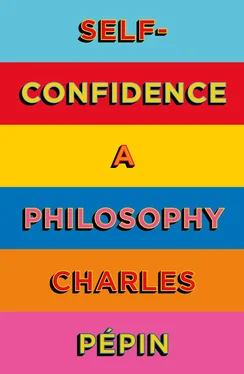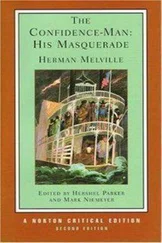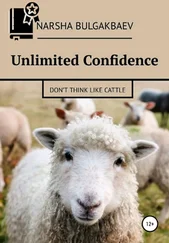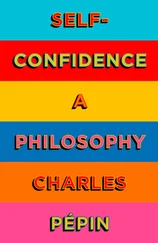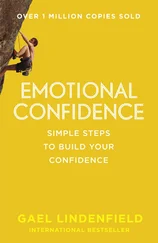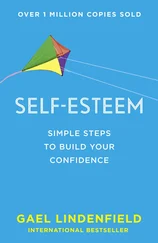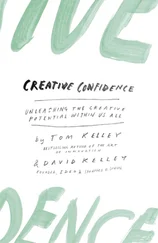The first years are decisive, but luckily we can build relationships that give us confidence at any age. If we did not have the good fortune to grow up in a nurturing emotional environment, it’s never too late to form the bonds that we lacked early on. But it does require knowing oneself well enough to realise that these bonds are missing and need to be compensated for.
Madonna Louise Ciccone was at first a shy child who lacked self-confidence. She lost her mother to breast cancer at the age of five and resented that her father remarried almost immediately and had a new set of children. She had trouble finding her place in the family circle. She studied piano and ballet from a young age but felt she wasn’t much good at either, that she had to work hard for modest results. But in adolescence, after her stepmother enrolled her in a Catholic school in Detroit, she met Christopher Flynn, a dance teacher who changed her life. While she was rehearsing for the end-of-year show, he said something to her that no one had ever said before, or at least not in so many words: that she was beautiful and talented, and that she had enormous charisma. Years later, Madonna explained that these words changed her life. Before, she hadn’t believed in herself. Now, she could see herself as a dancer in New York; she felt herself being born as an individual. At the end-of-year production, she surprised everyone – her teacher most of all – by dancing with extraordinary energy, and half naked! Madonna was born. Before Christopher Flynn, she’d had other piano and dance teachers. They had taught her many things, given her insight into movement and technique. But none had ever given her the gift of confidence.
I remember a concert that Madonna gave in Nice, France, when I was not yet eighteen. I was fascinated by her stage presence, her way of singing and dancing, her freedom. I remember the giant screen and her face in close-up when she sang ‘Like a Prayer’. Drops of sweat dripped into her eyes. In the look she gave the audience, in her smile, there seemed to be enormous gratitude. Naturally, Madonna was a highly skilled and experienced performer. The woman striding across the stage in every direction already had years of concerts behind her. But charisma can’t be attributed entirely to skill. There’s something more, an element of grace that the charismatic person must have. It’s in the eyes of others that the charismatic person seeks her own truth; she relates to others through constant reinvention. At the time, I didn’t understand very well what I was seeing on that giant screen. Today when I think back to Madonna’s vibrant smile, I believe she was finding in the audience’s response, in their energy, in their love even, that same confidence she had seen long before in the eyes of her dance teacher.
Madonna didn’t grow up in an environment that gave her security, but she found a way to compensate for it later.
If we have had the good fortune, in our early years, to experience warm and nurturing personal ties, later encounters that reinforce our confidence will still be important. But they will be experienced in a different way: through them we will relive, at decisive moments, the grace of someone’s early confidence in us.
Yannick Noah, the great French tennis star, was greatly loved by his parents, Zacharie and Marie-Claire. Deeply in love with each other, they lavished affection on their son. When Yannick was eleven, he met African-American tennis champion Arthur Ashe, who was then ranked fourth in the world and had stopped for a layover in Yaounde, Cameroon, on a tour of Africa. Yannick was lucky enough to hit a few balls with Ashe, who was so struck by the youngster’s level of play that at the end of the session he gave him his racket. The next day, as Ashe was waiting in the airport to board his plane, the young tennis player ran up to him breathlessly holding out an Arthur Ashe poster for the champion to sign. Ashe did more than give the boy an autograph. He wrote, ‘See you at Wimbledon!’ As Yannick Noah would tell the world a few years later, having won the men’s singles title at the French Open, those four words were an invaluable gift. They galvanised him and stayed with him. They allowed him to believe in his own star; they helped him become a tennis player on a level with Arthur Ashe.
With Madonna and Yannick Noah, we see that sometimes it only takes a few heartfelt words from a teacher or a friend to instill self-confidence, and that these words from the heart can give a person confidence for a lifetime.
Others can also give us confidence, without making a big speech or offering words of encouragement, just by trusting us with a mission.
Once I was visiting a corporation to give a talk on ‘The Mystery of Confidence’. A woman came up to me afterward to say that, on returning to work after taking her maternity leave, she had lost all her self-confidence but that she had eventually regained it. It had all started because of her misery at having to leave her toddler behind. She felt brittle and on edge, and she thought she wasn’t up to performing her job, with all its many responsibilities. A few days after her return, her boss called her into his office. She expected the worst. To her surprise, he appointed her to take on a project of crucial importance. No one had ever given her so much responsibility. She immediately regained her self-confidence.
Aristotle gives a very unusual and accurate definition of friendship. A friend, says the author of The Nichomachean Ethics , is someone who makes us better. When he or she is around, we feel good, we make progress, we become more intelligent or more sensitive, we open ourselves up to new aspects of the world and of ourselves, aspects we had not previously known. A friend, says Aristotle, is a person who helps us ‘actualise our own power’. Thanks to our friend, or more accurately, thanks to the relation that we have with our friend, we develop ‘in action’ such talents that had only been latent or ‘in potential’ before. The friendship relation is therefore the occasion for our growth and development. The friend need not be motivated by pure generosity or listen endlessly to our complaints. If our relation to that person is good for us, for our talent, if it allows us to make progress, then that person is our friend: a friend to the life inside us. From this perspective, our piano or dance or drawing teacher, or the sports champion we happen to meet, or our boss at work, can be our friend, on condition that he or she gives us the opportunity to develop, to make progress.
When we spend time with a martial-arts teacher, a sports coach, a yoga instructor – all possible friends in Aristotle’s sense – we gain confidence in ourselves, and not just because we are acquiring skills. Sensitive to the positive attention of another, in the company of someone who wants good for us, we rediscover our truth as relational beings. It isn’t our piano teacher or our martial arts instructor as such who gives us confidence but the relationship that we have with that person. The relationship is experienced as a series of regular meetings that punctuate the progress we are making. Each time, we feel the other’s satisfaction at seeing us improve, we feel the ability that person has to motivate us, to support us when we run into difficulties. Little by little, our mentor’s confidence in us becomes our own. That is how confidence works, and it’s the human way, properly speaking, to learn.
A good teacher instills confidence in us by making us repeat correct actions, by making us practice our scales. Then he invites us to act on what we have learned: he shows confidence in us. When someone makes us confident, these two facets are always intertwined.
While working on this book, I met a quite unusual mountain climber, Érik Decamp. A graduate of the prestigious École Polytechnique, he had climbed some of the highest peaks in the world, including Ganesh IV in the Himalayas and Shishapangma in Tibet, with his wife, the well-known climber Catherine Destivelle. But he was also an alpine guide, that is, a professional in the field of self-confidence. To practise this profession, you need to have confidence in yourself and you need to be able to impart it to others, to the clients you are guiding. To help a person overcome his fear, Érik Decamp uses a strategy that might seem risky but that often proves very effective. When someone seems particularly nervous during the preparation and training before departure, Érik Decamp will sometimes pick them to lead the climb. Often that is enough to free the person of their anxiety. Because the guide shows trust in them, the nervous climber suddenly feels stronger. Érik Decamp begins by instilling confidence in his client, through his advice, his explanations, and by rehearsing various moves and protocols until they became second nature. Then he shows that he trusts the climber by asking them to lead off. With the others roped in behind them, the designated leader has to show that they are worthy of the confidence that has been placed in them.
Читать дальше
